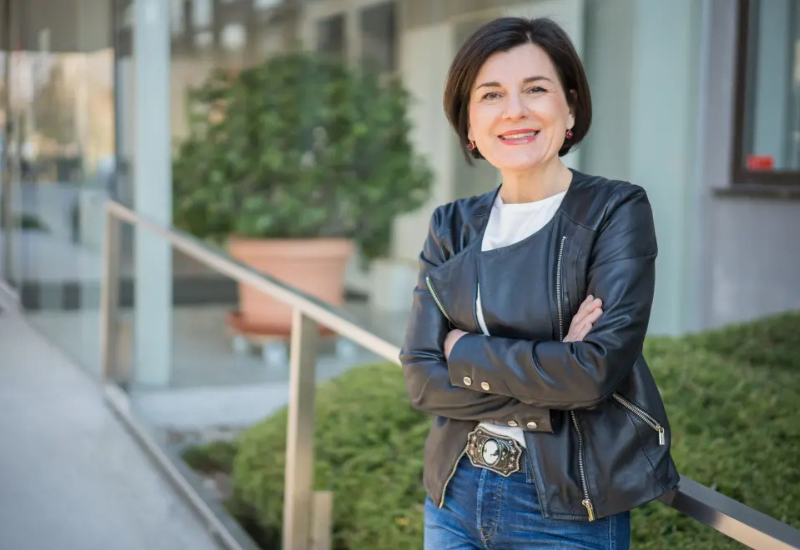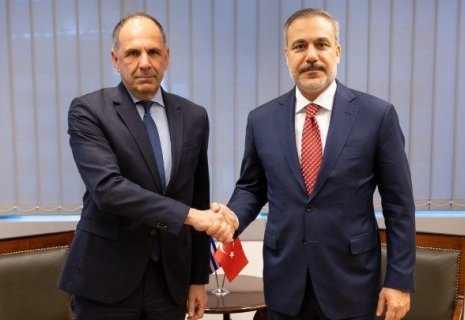
Expert reveals Slovenia’s roadmap for global leadership
Jadranka Jezeršek Turnes, a science and innovation communicator and contributor to the EU Framework for Science Diplomacy, argues that strong science diplomacy is needed, in particular for small countries such as Slovenia, which must take a strategic step forward, CE Report quotes The Slovenia Times.
In an era of global turbulence - from geopolitical fragmentation to technological rivalries and ecological tipping points - Europe has come to realize that defence and science are becoming the twin pillars of resilience. Where conventional diplomacy reaches its limits, science can still build bridges. Where mistrust impedes dialogue, scientific collaboration can transcend ideology. This is the spirit behind the new European Framework for Science Diplomacy, a landmark policy report I am proud to have co-developed with 130 experts across Europe. As a science and innovation communicator and founder of the Kontekst Institute, I have spent years navigating the intersections between research, policy, and society. Science diplomacy is where these threads converge - and it is time Slovenia takes a clear, strategic step forward.
A new European framework, a new global role for science
Published by the European Commission's Directorate-General for Research and Innovation, A European Framework for Science Diplomacy marks a significant milestone: for the first time, Europe sets out a coherent structure for how science, technology and international relations should co-evolve. The report defines science diplomacy not as a niche practice but as a vital strategic function of EU external action. The framework emphasizes that science is not neutral, nor should it be passive. It is a form of influence, a soft (and sometimes hard) power that enables countries to protect democratic values, promote open knowledge, and foster cooperation in fragile contexts. From climate adaptation to AI ethics, pandemic response to space governance, science diplomacy is where the next chapters of global governance are being written.
What does this mean for Slovenia?
For a small country like Slovenia, science diplomacy is not a luxury - it is a necessity. It is a tool that allows us to engage in high-level strategic dialogue, access competitive research alliances, and strengthen our international visibility through knowledge, not size. Slovenia has a strong research ecosystem, notable participation in international science projects like CERN and ESA, and a diaspora of researchers that already act as informal science ambassadors. What we lack is a systematic national framework to connect these assets with our foreign policy and international development goals. We need to ask: Where does Slovenia want to lead? In which domains - biotechnologies, climate tech, digital health - do we want to be seen as credible, reliable partners? Science diplomacy can effectively support this direction.
Let's not confuse science diplomacy with business diplomacy
One crucial insight from the EU framework is that science diplomacy is not an extension of economic diplomacy. It requires different methods, metrics, and mindsets. Unlike business relations, science collaboration operates on openness, peer recognition, and long-term trust-building. It demands specific competencies: understanding research funds or funding institutions, navigating multilateral science bodies, decoding policy impact of emerging technologies, and ethically managing data and partnerships. That is why science attachés, for example, cannot be generalists. They need to be equipped with tools to understand the unique dynamics of science ecosystems. Simply repurposing commercial diplomacy approaches won't work - science diplomacy needs its own language and tools.
The time for action is now
The EU framework outlines concrete recommendations that Slovenia can implement immediately:
-
Establish a Strategic Advisory Council on Science Diplomacy involving scientists, policymakers and international partners.
-
Introduce pilot training programmes for science attachés and diplomats, in partnership with leading research institutions.
-
Align national R&D priorities with foreign policy goals - for instance, in sustainable food systems, digital sovereignty, or green industrial transitions.
-
Build alliances with like-minded countries to shape future EU science diplomacy instruments.
And most importantly: integrate science diplomacy into Slovenia's next Foreign Policy Strategy as a cross-cutting priority. These are not lofty ideals. They are achievable actions - but only if we act with foresight and coordination.
Science diplomacy is the smart power of small states
We are entering a world where research and innovation determine who has access to solutions, to data, to security. For Slovenia, this is not a risk - it is an opportunity. Science diplomacy allows us to punch above our weight, to build networks that benefit our economy, our universities, and our global standing. The European Framework for Science Diplomacy gives us a roadmap. Let us not waste it. It is time for Slovenia to connect its scientific excellence with its foreign policy capacity - and shape the future not just by reacting to it, but by co-creating it.
























